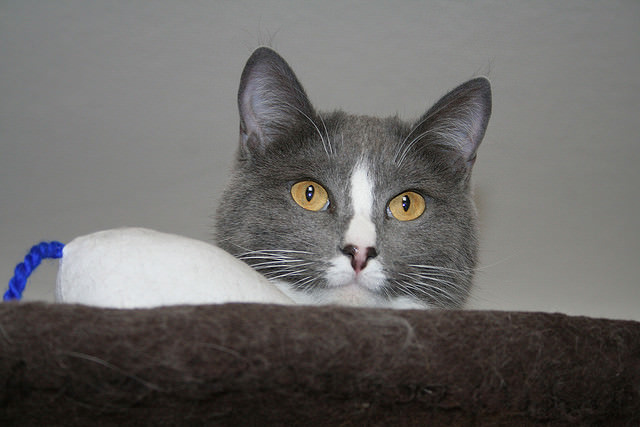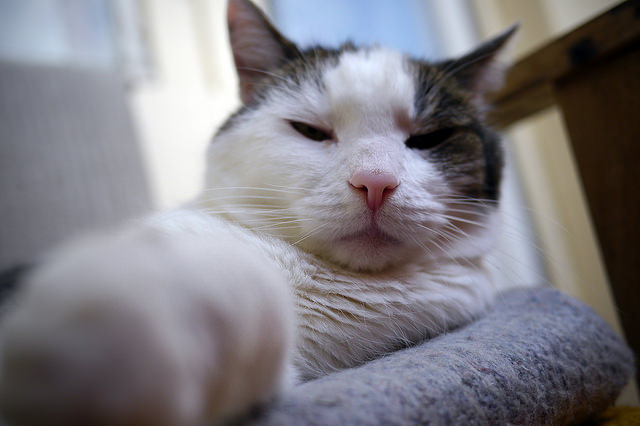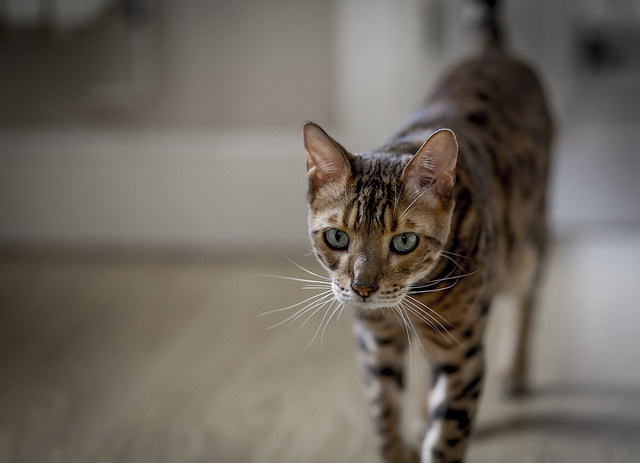The term “senior” isn’t absolute when it comes to cats. In fact, depending on who you ask, the answer could start anywhere from 7-11 years old. In cat years that’s a huge gap! Most experts agree, though, that the term has less to do with physical age and more to do with the state of your cat’s body, mind, and behavior.
Here are some common indicators that your cat may have crossed into senior territory. It’s a good idea to make an appointment with your veterinarian if you notice any of them, since many can either indicate an underlying health problem or cause your cat unnecessary pain and discomfort.

Image Source: Andreas Thell via Flickr.com
Limited mobility
Many cats develop joint pain and stiffness as they become older. If this happens, you may notice that your cat is no longer jumping onto your bed or running for treats. It can help to alter your home a bit to help her get around. For instance, consider adding something lower for her to step on that will bridge the gap between the floor and her favorite perch.

Image Source: Sergey Ivanov via Flickr.com
Weight loss
It’s common for senior cats to experience weight loss. This particular sign of aging should be taken seriously since sudden weight loss can often signal an underlying health problem– which your cat will be more prone to as her body ages.

Image Source: A J Thackway via Flickr.com
Changes in cognitive behavior
Did you know that cats can experience Alzheimer’s and dementia? Your cat may be experiencing one of these or another cognitive behavior problem if she appears to be unaware of her surroundings, doesn’t recognize familiar people, or yowls as if she is lost.

Image Source: BluebearsLair via Flickr.com
Change in grooming habits
There are many reasons cats stop grooming themselves properly. In elderly cats though, the two most common reasons are joint pain (which can prevent her from being able to reach large parts of her body) and an underlying illness (which could make her feel too crummy to bother).
